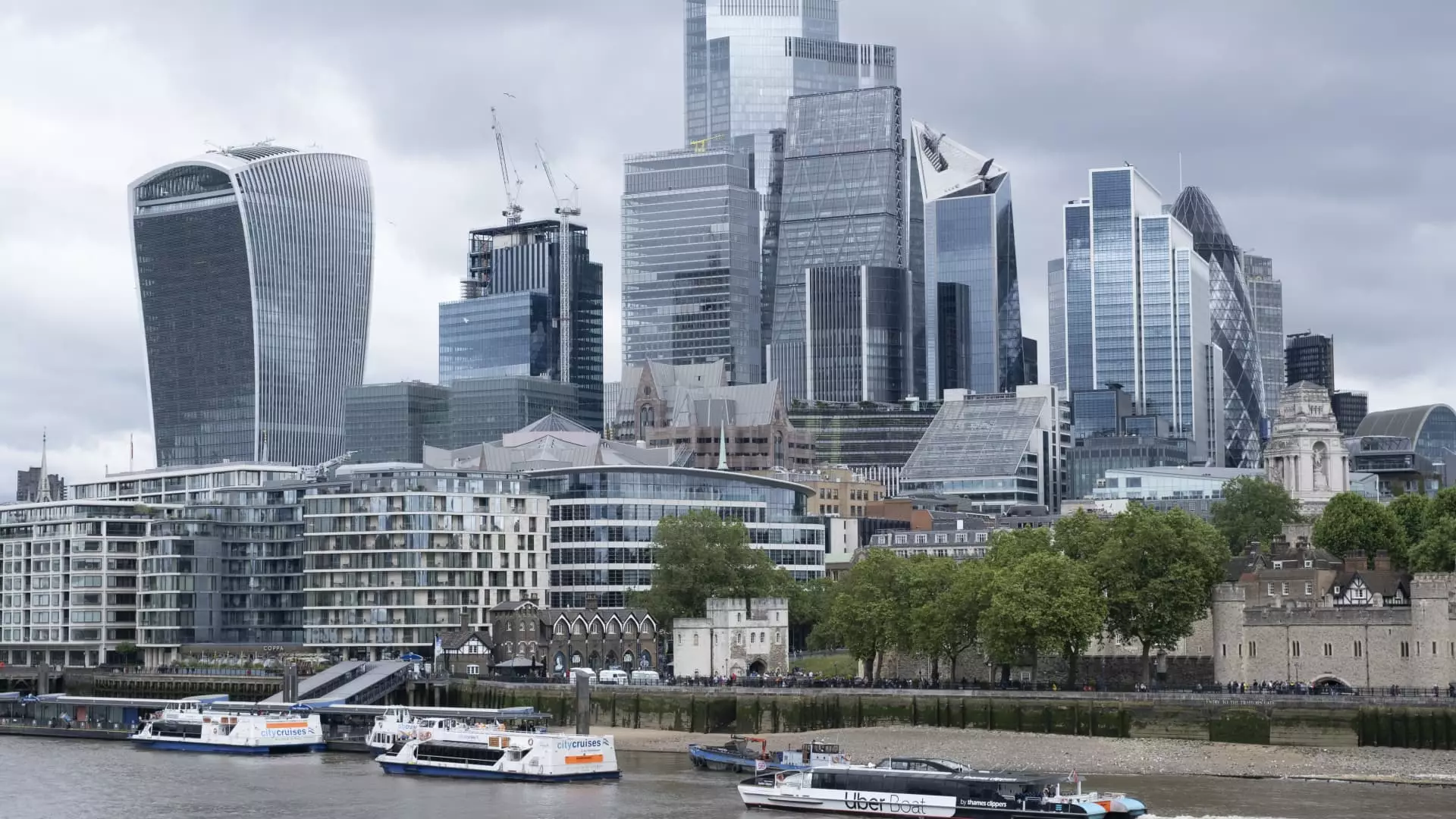The International Monetary Fund (IMF) has recently adjusted its growth forecast for the United Kingdom for 2024, projecting a more optimistic 1.1% expansion compared to its earlier estimate of 0.7%. This revision signals a potential uptick in the economic conditions driven by declining interest rates and inflation, which are expected to enhance domestic demand. Such a transformation in the economic landscape points to a recovery phase for the UK, instilling a sense of cautious optimism among economists and policymakers alike.
The IMF also maintained its forecast for a 1.5% growth rate in 2025, indicating a sustained long-term improvement after a tumultuous period characterized by high inflation and interest rates. The significant drop in inflation—from a staggering 11.1% in October 2022 to 1.7% in September 2023—has created a favorable backdrop for economic activity. This decrease has been propelled by lower inflation in services and restrained wage growth, which has encouraged analysts to anticipate a more aggressive round of interest rate cuts by the Bank of England. Forecasts suggest a reduction of the key rate from 5.25% to around 4.5% by the end of 2024, potentially easing financial burdens on consumers and businesses.
Despite signal improvements, the UK has faced a sluggish economic pace this year, exemplified by a mere 0.2% growth in August after stagnant figures in the preceding months. The uncertainty surrounding the upcoming budget proposal from the Labour Party, expected to bring its first fiscal plan in 14 years, has further contributed to mixed consumer sentiments. Prime Minister Keir Starmer has acknowledged the challenging decisions necessary to manage a projected £22 billion financing gap while committing to reducing net borrowing. This gap, however, has faced skepticism from former Conservative leaders, indicating a politically charged atmosphere around fiscal strategies.
Public sentiment has shown signs of improvement, as reflected in the S&P Global UK Consumer Sentiment Index, which revealed greater optimism regarding personal finances and a willingness to undertake significant purchases. Such trends may provide necessary momentum for consumer spending, which plays a critical role in driving overall economic growth. However, despite this positivity, the shadow of uncertainty regarding tax policies plagues the economic environment, especially as Labour plans to implement tax increases in various sectors while excluding major tax hikes on income and corporate profits.
In the context of these economic developments, Finance Minister Rachel Reeves has emphasized the importance of the IMF’s updated forecast, reflecting a shared recognition of the pressing need for actionable measures to ensure economic stability and growth. Following her appointment, Reeves has reiterated Labour’s commitment to achieving the highest sustained growth rate within the G7 nations, positioning growth as a central pillar of their policy framework. However, the balancing act of maintaining fiscal discipline while stimulating the economy remains a formidable challenge.
In a broader context, the IMF has adjusted its growth outlook for other regions, notably the eurozone, where it now predicts a marginally slower growth rate of 0.8%, down from 0.9%. A critical analysis of the eurozone highlights concerns, particularly in Germany, which faces a potential stagnation due to numerous economic pressures, such as stiff competition in manufacturing and rising energy costs. This highlights a divergence in recovery paths across major economies.
Furthermore, the IMF’s growth projections for other advanced economies indicate varying degrees of recovery, with the United States expected to expand by 2.8%, Canada at 1.3%, and Japan lagging behind at a mere 0.3%. Japan’s struggles with high inflation and lackluster demand juxtapose the more favorable outlook for the UK, suggesting differing approaches to economic management.
While the revised growth forecast from the IMF presents an encouraging outlook for the UK, it is crucial to navigate the delicate landscape of economic recovery with prudent policymaking. The Labour government’s forthcoming budget will unequivocally shape the trajectory of the UK economy, underscoring the importance of balancing growth ambitions with fiscal responsibilities. The path to economic revitalization will undoubtedly be fraught with challenges, but with strategic measures, the UK may find itself on a more stable and prosperous footing in the coming years.


Leave a Reply